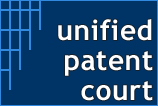The recruitment of legally and technically qualified judges of the Unified Patent Court has started. Vacancy notices for the Court of First Instance and the Court of Appeal in English, French, and German were published on 9 May 2016.
 As is explained in the vacancy notice, an Advisory Committee (comprising ‘patent judges and practitioners in patent law and patent litigation with the highest recognised competence’, article 14 UPCA) will hold interviews with candidates who have been selected on the basis of their Application Forms and CVs, references and any other documents provided. ‘The interview will aim at evaluating skills necessary for judicial functions at the UPC, such as judicial ethics, experience in meeting tight deadlines, oral communication skills, the capacity to work in a multinational and multilingual environment, etc.’
As is explained in the vacancy notice, an Advisory Committee (comprising ‘patent judges and practitioners in patent law and patent litigation with the highest recognised competence’, article 14 UPCA) will hold interviews with candidates who have been selected on the basis of their Application Forms and CVs, references and any other documents provided. ‘The interview will aim at evaluating skills necessary for judicial functions at the UPC, such as judicial ethics, experience in meeting tight deadlines, oral communication skills, the capacity to work in a multinational and multilingual environment, etc.’
Subsequently, the Advisory Committee will present a list with most suitable candidates to the Administrative Committee (composed of one representative of each Member State), which serves as a basis for appointments. Quality is not the only decisive factor: ‘When appointing judges, the Administrative Committee will ensure the best legal and technical expertise and a balanced composition of the UPC, on as broad a geographical basis as possible among nationals of the Contracting Member States.’
The vacancy notice is accompanied by information for each Member State on the requirements to be fulfilled. Candidates must be nationals of states that have signed the UPC Agreement, but they can only be appointed as judges if these states have ratified the UPCA.
A full-time judge in the Court of First Instance will earn €132,000 net per year. Judges in the Court of Appeal will have an annual income to €144,000. Earlier this year, the UPC Preparatory Committee announced most judges will be hired on a part-time basis.
The vacancy notice clarifies that ‘candidates for posts of part-time legally qualified judges, who wish to remain, for instance, in private practice, as well as by candidates for posts of full-time technically qualified judges who plan on maintaining other occupations’ will have to ask the Administrative Committee for an exception to article 17(2) UPCA, which states that they ‘may not engage in any other occupation, whether gainful or not’.
Members of the Board of Appeal of the European Patent Office (EPO) will not be allowed to combine this with becoming a UPC judge.
The deadline for applications is 4 July 2016, so British candidate-judges will have time to apply if the ‘remain’ vote wins in the 23 June referendum on a Brexit from the EU – or, if the ‘leave’ vote wins, not to bother. The selection process is expected to take ‘about 7 months, with appointment dates depending on the actual coming into operation of the UPC’.
For regular updates on the Unitary Patent and the Unified Patent Court, subscribe to this blog and the free Kluwer IP Law Newsletter.
_____________________________
To make sure you do not miss out on regular updates from the Kluwer Patent Blog, please subscribe here.
Kluwer IP Law
The 2022 Future Ready Lawyer survey showed that 79% of lawyers think that the importance of legal technology will increase for next year. With Kluwer IP Law you can navigate the increasingly global practice of IP law with specialized, local and cross-border information and tools from every preferred location. Are you, as an IP professional, ready for the future?
Learn how Kluwer IP Law can support you.


